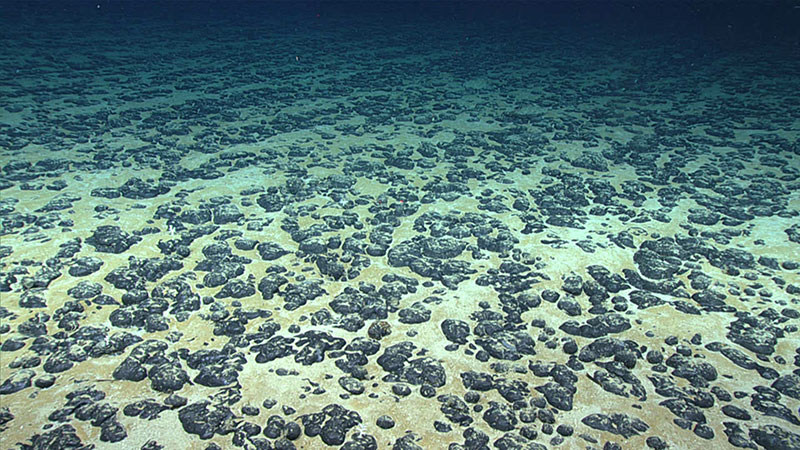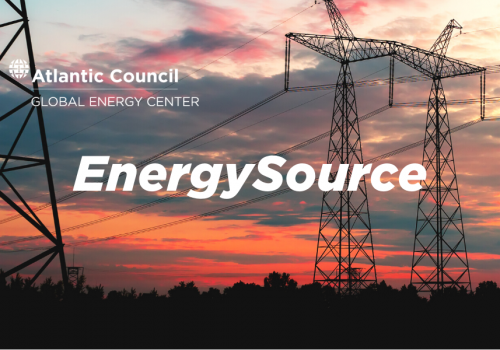Hundreds of former political and military leaders are calling for the US Senate to ratify the UN Convention on the Law of the Sea (UNCLOS), the impetus being to open up deep sea mining to supply critical minerals needed for clean energy and military technologies. UNCLOS, adopted in 1982, is the primary international treaty governing state activities in oceans, particularly in areas beyond national jurisdiction that hold seabed minerals. Deep seabed resources include highly valued minerals such as cobalt, nickel, and rare earths. Recent technological advances and new companies are making their extraction economically feasible for the first time.
STAY CONNECTED
Sign up for PowerPlay, the Atlantic Council’s bimonthly newsletter keeping you up to date on all facets of the energy transition.
The United States has yet to ratify the UNCLOS due to historic opposition toward its international regulation of seabed resources in the High Seas. This lack of participation bars US companies from directly participating in what could be a significant new industry. It has already led to dominance of deep sea exploration permits by geopolitical competitors—China and Russia have together won nine permits, including in areas historically claimed by the United States. By ratifying the Law of the Sea treaty, the United States can bolster critical mineral supply security, enter deep sea markets, and enhance national security.
Governments and private industry have long worked to enable the extraction of minerals from the deep seabed for a range of resources, including cobalt crusts, hydrothermal sulphides, and polymetallic nodules. Of these, polymetallic nodules are the most sought after—ocean processes create these billiard-ball-sized clumps of valuable metals. Ore grades in nodules significantly exceed those on land, making their extraction both cost and emissions efficient. The largest collection of nodules is located in an area called the Clarence Clipperton Zone (CCZ), which stretches the Eastern Pacific between Hawaii and Mexico. Recent technological developments, particularly in remotely operated vehicles and underwater vehicles, mean that deep sea resources are potentially economical today.
Reliable critical mineral supplies are increasingly important for the global economy and security. They are needed to meet clean energy needs, including electricity infrastructure, electric vehicles, and renewable energy. Many advanced technologies for defense applications, particularly electronics, require stable and growing supplies of these rare minerals. China dominates extraction and processing of most critical minerals, while the United States is a major importer for all minerals that deep sea mining might supply.
Governance of deep sea mining depends on location. Under UNCLOS, seabed resources within exclusive economic zones are governed by the relevant nation. Norway recently became the first country to authorize mining of such resources in their jurisdiction, but most resources are outside such zones. Resources in the remaining half of the ocean, called the High Seas, are governed by the International Seabed Authority (ISA). Although the United States played an active role in negotiating UNCLOS and considers most of it customary international law, it has not ratified the treaty due to Senate opposition to the role of the ISA. Among other reasons, some senators historically opposed the ISA’s international royalty mechanism, and expressed concerns about precedent for other domains like outer space. Without ratification, the United States cannot directly participate in the ISA’s governing process, and American companies cannot receive ISA mining permits.
These criticisms are not unfounded. The ISA has existed for decades and yet is struggling to establish a governance framework. The small nation of Nauru is forcing the issue legally, and the ISA is close to finalizing its mining permit system, without clear environmental protection. Global environmental groups have called for a moratorium on deep sea mining until scientists can conduct more research on environmental impacts.
Still, one of the primary objections (that an ISA-like royalty mechanism would be created for space exploration) to ratifying the law of the sea is no longer valid. In the last decade, the United States and many other countries have passed domestic legislation legalizing space mining without a space equivalent to ISA. This approach has been legitimized by the multilateral US-led Artemis Accords, which now has thirty-five signatories including all major space powers except China and Russia. The United States has secured a governance pathway forward for space resources that does not repeat the limitations of the ISA.
The letter calling for ratifying the Law of the Sea is the culmination of a growing bipartisan agreement around securing critical minerals in the face of an ongoing trade war with China. A group of bipartisan senators led by Senators Lisa Murkowski, Mazie Hirono, and Tim Kaine introduced a resolution explicitly calling for ratification. Congress, in both informal letters and directed reports, is pushing for studies on deep sea resources in US waters and the ability to establish domestic processing infrastructure. In late 2023, the US State Department initiated an extended continental shelf claim into the Arctic and Pacific oceans, exerting jurisdiction over seabed mining for certain areas beyond its exclusive economic zone, a practice explicitly outlined in UNCLOS. However, China and Russia have challenged this new assertion, arguing at ISA that the US cannot make the claim because it has not signed UNCLOS.
Ratifying UNCLOS would also bolster US diplomatic power. The Houthi campaign in the Red Sea is disrupting 20 percent of global maritime trade. Multiple submarine telecommunications cables in the Baltic Sea and Red Sea have been severed in the last year, threatening global internet connectivity. For more than a decade, China has been violating the principles of the LOS with their actions in the South China Sea and elsewhere. UNCLOS ratification would greatly strengthen US credibility in seeking international coalitions to push back against these challenges.
The future of deep sea mining remains uncertain. The burgeoning industry faces technical, economic, regulatory, environmental, and political challenges. The abyssal plains of the deep seabed hold unique biodiversity and are fragile, so mining activities must readily incorporate environmental best practices to limit impacts and gain social license to operate. Nevertheless, its potential benefits to meeting critical mineral supply are substantial, as are the geopolitical stakes of establishing a leadership position. The urgency of securing critical mineral supply means the time is right for the United States to reconsider its formal participation in UNCLOS.
Alex Gilbert is a PhD student in space resources and a fellow at the Payne Institute for Public Policy at the Colorado School of Mines.
Morgan Bazilian is the director of the Payne Institute for Public Policy at the Colorado School of Mines.
Related content
Learn more about the Global Energy Center

The Global Energy Center develops and promotes pragmatic and nonpartisan policy solutions designed to advance global energy security, enhance economic opportunity, and accelerate pathways to net-zero emissions.
Image: Most of the seafloor explored during Dive 07 of the 2019 Southeastern U.S. Deep-sea Exploration was covered with these manganese nodules, the subject of the Deep Sea Ventures pilot test nearly five decades ago.




